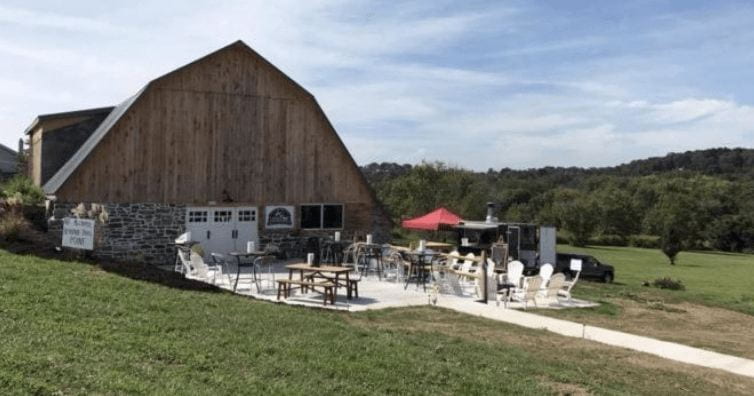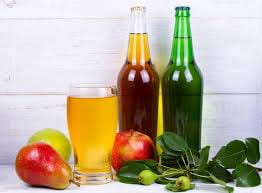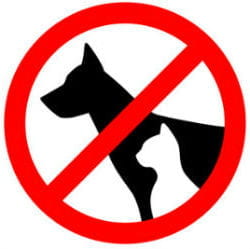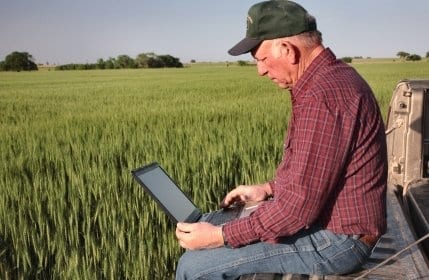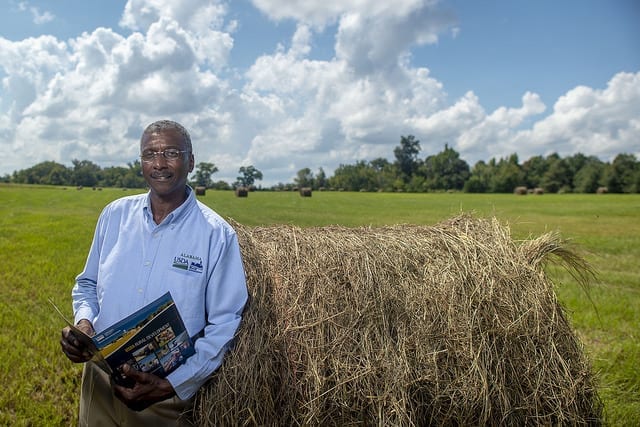By: Sarah Phillips
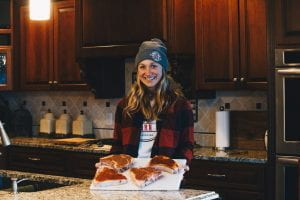 I have the pleasure of introducing Hannah Esch as May’s Entrepreneur of the Month. Hannah is the founder of Oak Barn Beef, a farm-to-table beef subscription service that sells beef it purchases from her family’s ranch in Nebraska. Hannah started Oak Barn Beef, a one-stop online source where consumers can purchase quality beef, as a college student.
I have the pleasure of introducing Hannah Esch as May’s Entrepreneur of the Month. Hannah is the founder of Oak Barn Beef, a farm-to-table beef subscription service that sells beef it purchases from her family’s ranch in Nebraska. Hannah started Oak Barn Beef, a one-stop online source where consumers can purchase quality beef, as a college student.
finding your “why”
Growing up on 8 acres in Colorado, Hannah became involved in FFA and 4-H at a young age, and it was in those programs that she first developed her passion for agriculture. At age 13, Hannah and her family moved to their current ranch in Nebraska. Hannah credits her ag-focused community and her family (who has been farming for 5 generations!) for helping foster her passion for hard work and agriculture.
 For Hannah, the moment she heard a child in the grocery store say “eggs come from cow because they are next to the milk in the grocery store,” she knew she had to do something to bridge the gap between consumers and their food. At that time, Hannah was a sophomore Animal Science major at the University of Nebraska-Lincoln and was serving as the Nebraska Beef Ambassador. Hannah really enjoyed school and interacting with consumers, but was not quite sure how all of that fit into her career aspirations. But when she heard that child’s statement, she knew she had found her “why.” Knowing why she has started her business, and always focusing on what she hopes to accomplish, has kept her motivated, even with a busy college schedule.
For Hannah, the moment she heard a child in the grocery store say “eggs come from cow because they are next to the milk in the grocery store,” she knew she had to do something to bridge the gap between consumers and their food. At that time, Hannah was a sophomore Animal Science major at the University of Nebraska-Lincoln and was serving as the Nebraska Beef Ambassador. Hannah really enjoyed school and interacting with consumers, but was not quite sure how all of that fit into her career aspirations. But when she heard that child’s statement, she knew she had found her “why.” Knowing why she has started her business, and always focusing on what she hopes to accomplish, has kept her motivated, even with a busy college schedule.
focus on the problem first, then develop the solution
Hannah credits Oak Barn Beef’s success to her commitment to thinking about the problem first and then shifting her focus to developing solutions.
“If you are thinking about solutions first, how can you really be sure you are providing a product or service that solves a real customer’s problem?”
It was when Hannah recognized that there was a gap between consumers and food producers—the problem— she was able to focus on developing solutions for educating consumers on where their food comes from, starting at the farm and ending at the dinner table.
the best time to start a business
Even though it might seem challenging to start a business as a college student, Hannah states that college is the best time to start a business. She explains that there are so many great (and often free or discounted) resources available to college students to help kickstart their businesses. For example, Hannah is part of the Engler Agribusiness Entrepreneurship Program where she has access to mentors, resources, and support from her fellow entrepreneurs. This entrepreneurship program is open to all University of Nebraska-Lincoln students who want to start their businesses now. The program has allowed Hannah and her peers in the program to bounce ideas off each other, learn by actually doing, develop her business plan or operating documents, and find support within a community of other entrepreneurs who also are trying to start a business while in college.
just get started
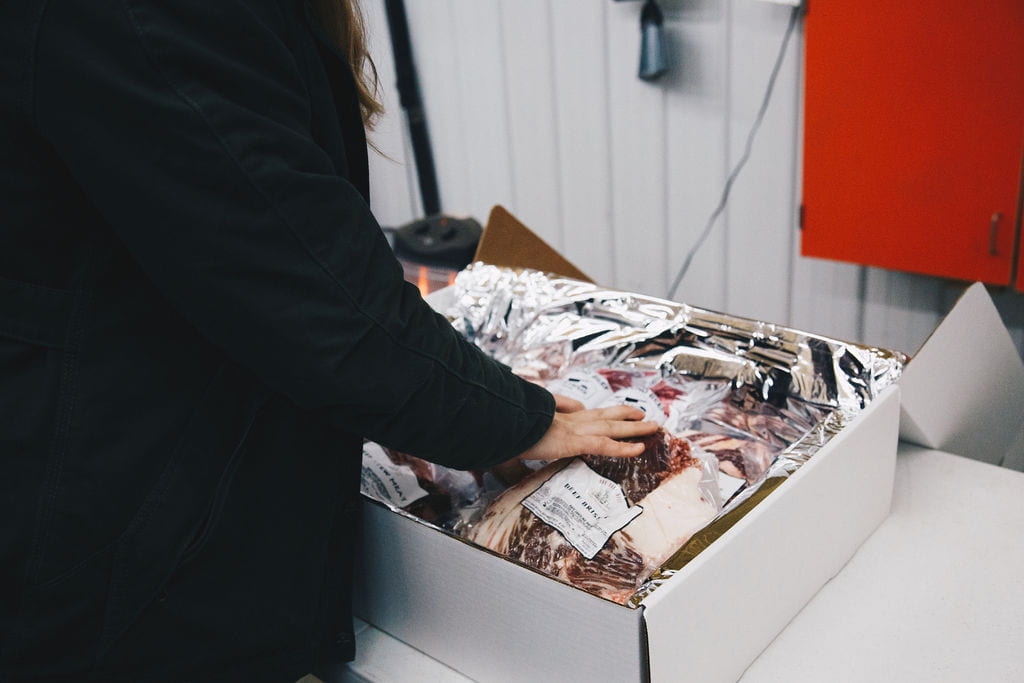 Hannah knew that if she waited for everything to be perfect, she would never get started on her business. This is one piece of advice Hannah gives during her presentations and conversations with other entrepreneurs – don’t be afraid to take a risk and just get started; if you wait until the perfect moment, you’ll be waiting forever! For Hannah, this meant not letting the fear of being young, or the heavy workload that comes with being an animal science major, stop her from pursuing her business goals.
Hannah knew that if she waited for everything to be perfect, she would never get started on her business. This is one piece of advice Hannah gives during her presentations and conversations with other entrepreneurs – don’t be afraid to take a risk and just get started; if you wait until the perfect moment, you’ll be waiting forever! For Hannah, this meant not letting the fear of being young, or the heavy workload that comes with being an animal science major, stop her from pursuing her business goals.
In addition to just going for it, mentorship has also been an extremely beneficial tool in growing her business. In the Summer of 2018, Hannah took a big leap of faith and emailed Five Marys Farm, a ranch in Fort Jones, California, and asked for an internship. As a result, Hannah got to learn from a working ranch and developed a relationship with other female entrepreneurs. Hannah says that she has found the benefit of having mentors to be that you have someone in your life who can reflect on your experiences with you. A mentor can also provide guidance and assistance along the way. Those always evolving and growing mentorships have helped Hannah grow her company into what it is today.
use your resources wisely
Hannah also recommends that young entrepreneurs take advantage of podcasts and audibles for free guidance on starting your business. Hannah frequently listens to the “Goal Digger” podcast by Jenna Kutcher which has provided her with practical advice and inspiration when it comes to seeing her business succeed.
Additionally, Hannah has taken advantage of using tools she is familiar with—Facebook and Instagram—to market her product at a low cost. Hannah also knew that telling her story would be important for connecting with consumers. Posting pictures and sharing stories via social media has allowed her customers to get to know her and her family, and ultimately helped consumers trust her to produce their food. For young entrepreneurs, letting your customers get to know you and providing insight into the business allows them to feel confident in both you and your process; this trust has been critical in getting and retaining customers within Hannah’s company.
meaningful moments
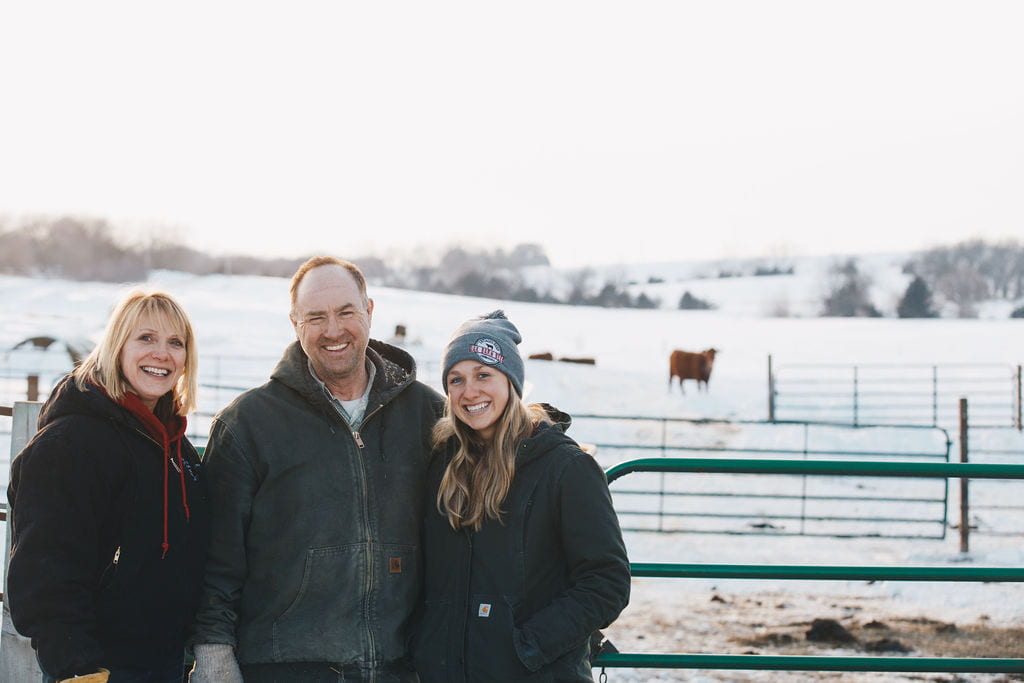 Although starting, managing, and running your own business can be challenging, the little meaningful moments that happen along the way make it all worth it for Hannah. Oak Barn Beef is a team effort between Hannah and her family. The ability to work together as a family and achieve a common goal is something that Hannah really appreciates about her business.
Although starting, managing, and running your own business can be challenging, the little meaningful moments that happen along the way make it all worth it for Hannah. Oak Barn Beef is a team effort between Hannah and her family. The ability to work together as a family and achieve a common goal is something that Hannah really appreciates about her business.
When asked about some of her favorite moments with Oak Barn Beef, Hannah immediately said “seeing all the orders come in.”
For Hannah, seeing orders come in means that customers trust her to raise and produce their food; that is the victory for her.
Hannah considers it a great honor to provide food for her customers, and every time she sees an order, it reminds her that she is capable and that her story is resonating with others.
To wrap up our conversation, I asked Hannah what the last piece of advice she would offer to other college students or young entrepreneurs who are just starting out in their careers. Hannah replied, “Be patient and make time to take care of yourself.” It’s so easy to want to accomplish everything at once, but starting a business is a journey that takes time. Focus on accomplishing the little things every day, and before long, you will be surprised at just how far you and your business will have grown.
You can learn more about Hannah, her family, and Oak Barn Beef by following her story on Instagram and Facebook.
 Sarah Phillips, at the time of this blog post, is a third-year law student at Penn State’s Dickinson Law. She is from West Amwell, New Jersey and has interests in agricultural, land use and business transactional law. She is currently serving as an Honor Code Representative and a Law Lion Ambassador. Sarah is the Editor-in-Chief of the Dickinson Law Review.
Sarah Phillips, at the time of this blog post, is a third-year law student at Penn State’s Dickinson Law. She is from West Amwell, New Jersey and has interests in agricultural, land use and business transactional law. She is currently serving as an Honor Code Representative and a Law Lion Ambassador. Sarah is the Editor-in-Chief of the Dickinson Law Review.




